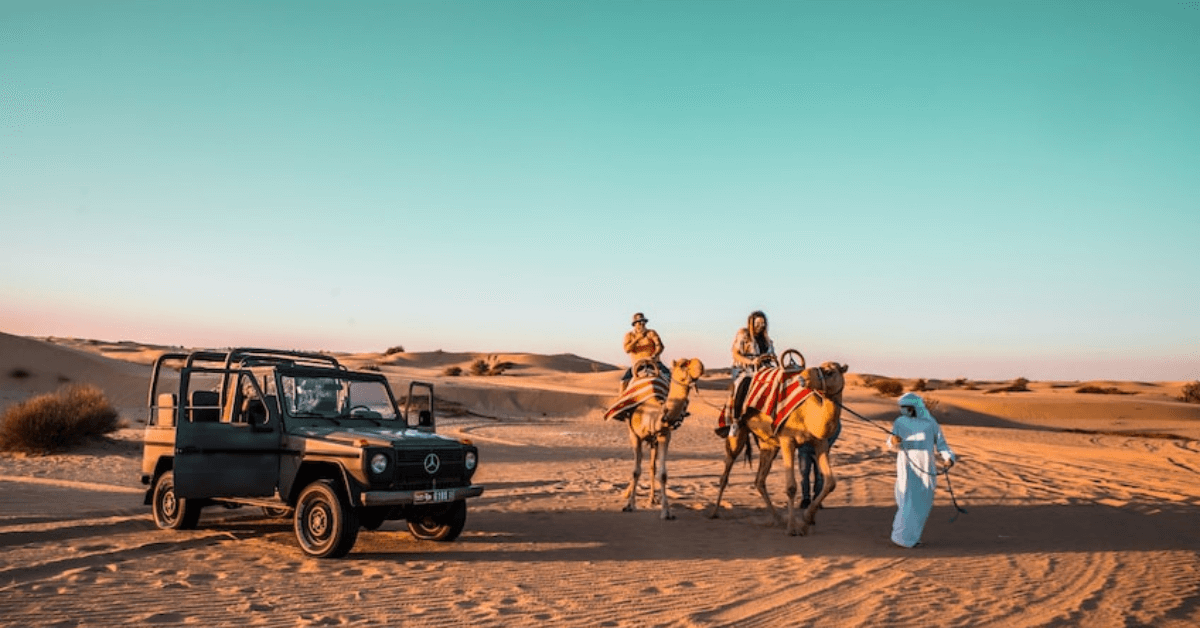The Bedouin culture is deeply rooted in the history and traditions of the Arabian Peninsula. As the native nomadic people of the region, the Bedouins have developed a unique way of life that has captivated the imaginations of many. In this article, we will delve into the fascinating aspects of Bedouin culture and explore its significance in the context of a desert safari in Dubai.
Origins and History of the Bedouin Culture
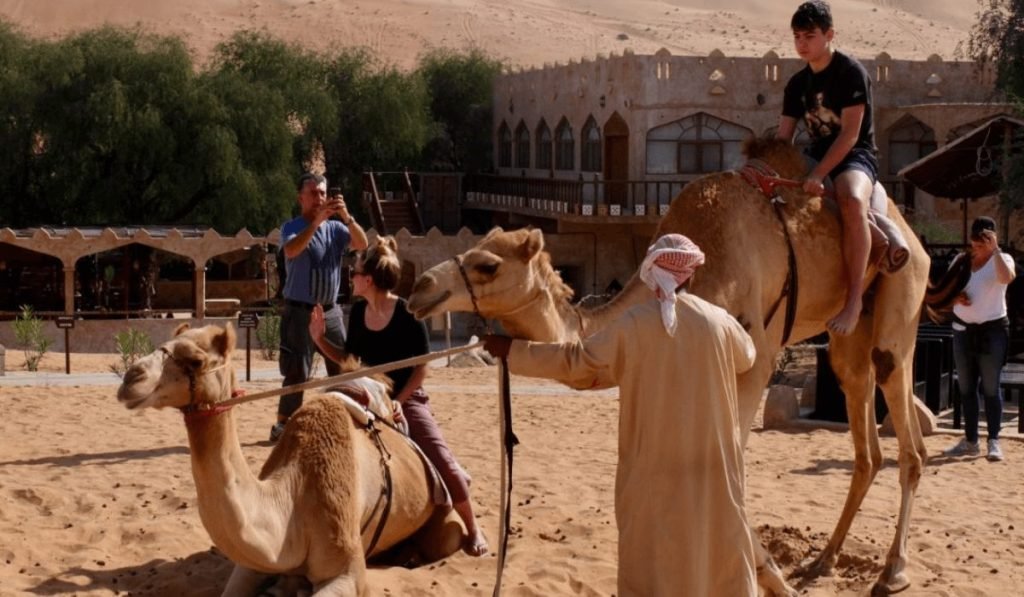
The Bedouin people have a long and rich history that dates back thousands of years. Their nomadic lifestyle allowed them to navigate the harsh desert environments, making use of their knowledge of water sources, navigation, and survival skills. Their history is intertwined with the development of trade routes, the rise and fall of empires, and the establishment of Bedouin tribes across the Arabian Peninsula.
Also Read: Camel Riding Safari
Traditional Bedouin Dress and Cuisine
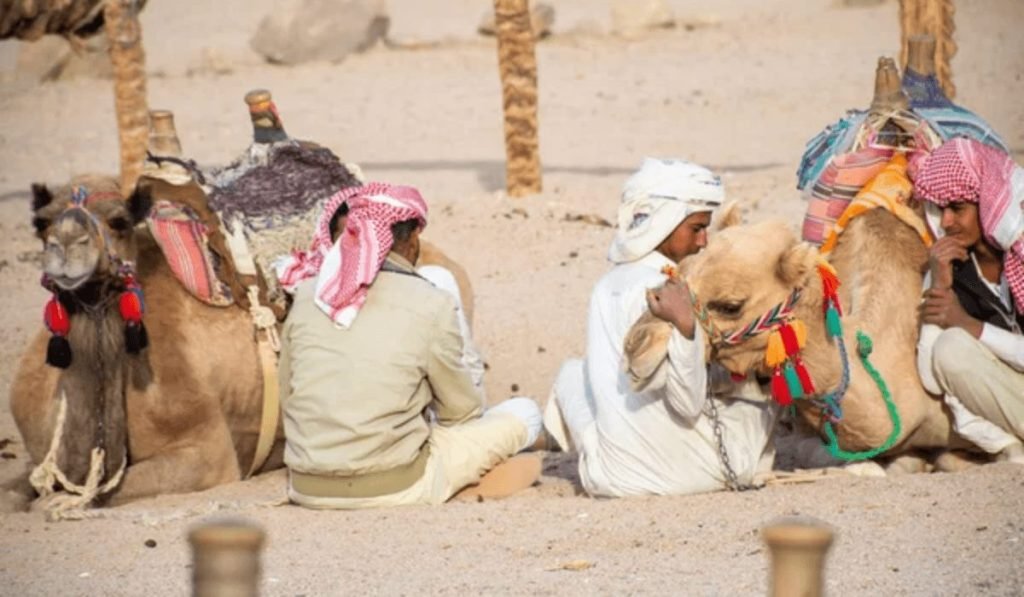
One of the striking elements of Bedouin culture is their traditional dress, which reflects the practical needs of desert living. The loose, flowing garments, such as the thobe for men and the abaya for women, provide protection from the scorching sun and allow air circulation. Bedouin cuisine is also unique, with dishes prepared using locally available ingredients like dates, camel meat, and aromatic spices. Traditional cooking methods, such as underground ovens known as “mathmos,” add a distinct flavor to the cuisine.
Bedouin Hospitality and Customs
Bedouin hospitality is legendary, and visitors to Desert Safari Dubai can experience it firsthand. The Bedouin people have a strong sense of communal living and often open their tents to travelers, offering refreshments, traditional food, and warm hospitality. This custom is rooted in their cultural values of generosity, solidarity, and respect for guests. Bedouin customs, such as the “majlis” (a gathering space for social interactions) and storytelling traditions, further enrich their vibrant cultural heritage.
Bedouin Arts and Crafts
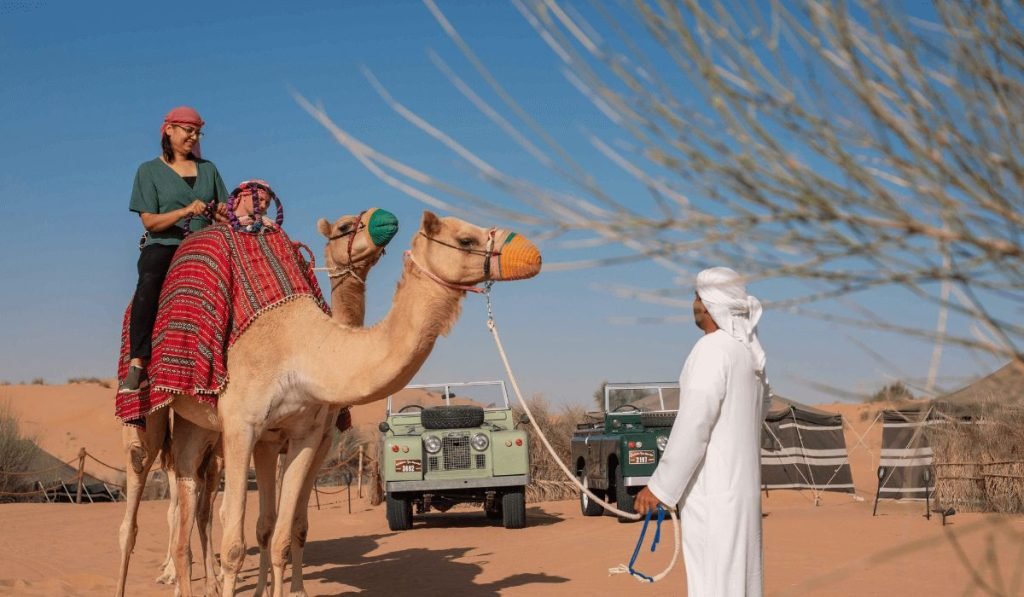
The Bedouin people have a rich artistic tradition, evident in their intricate handicrafts and embroidery. They produce beautiful textiles, rugs, and tapestries adorned with vibrant patterns and geometric designs. Traditional Bedouin crafts also include pottery, basket weaving, and silver jewelry. These artistic expressions not only serve as a source of income but also carry cultural significance and preserve the heritage of the Bedouin people.
Bedouin Music and Dance
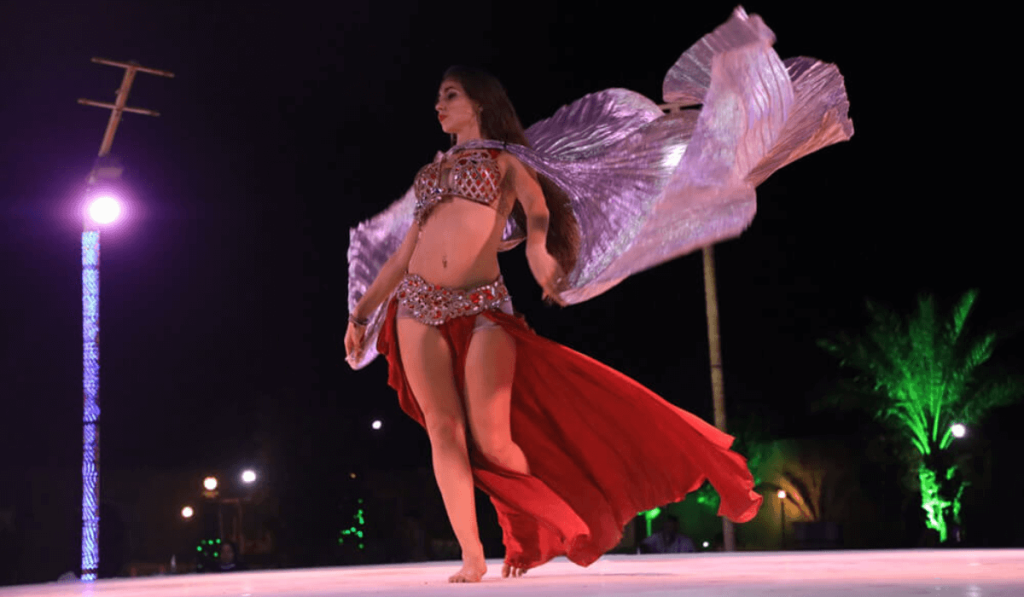
Music and dance play an integral role in Bedouin culture, serving as a form of expression and celebration. Traditional Bedouin music is often accompanied by instruments like the oud (a stringed instrument) and the darbuka (a drum). The rhythmic beats and melodic tunes create an immersive experience, especially during special occasions and festivals. Bedouin dance forms, such as the “raqs al-salah” (the dance of the sword) and the “raqs al-nashaat” (a dance performed by women), showcase the grace and elegance of Bedouin traditions.
Also Read: Overnight Desert Safari
Bedouin Traditional Sports and Activities
The Bedouin people engage in various traditional sports and recreational activities that reflect their nomadic heritage. Camel racing, a popular sport in the region, combines the grace of these majestic animals with the thrill of competition. Falconry, the art of training and hunting with falcons, is another traditional activity that has been practiced for centuries. Visitors to Desert Safari Dubai can witness these exhilarating sports and experience the adrenaline rush firsthand.
Bedouin Knowledge and Survival Skills
Surviving in the desert requires a unique set of skills, and the Bedouin people possess invaluable knowledge in desert navigation, animal husbandry, and survival techniques. Their expertise in locating water sources, tracking wildlife, and finding shelter in barren landscapes has been passed down through generations. Bedouin guides can offer insights into the desert ecosystem, providing visitors with an opportunity to learn and appreciate their resourcefulness.
Modern Adaptations and Challenges
While Bedouin culture has managed to survive for centuries, it faces modern challenges in the wake of globalization and urbanization. The rapid development of cities like Dubai has created both opportunities and threats to Bedouin traditions. The younger generation faces the dilemma of preserving their cultural heritage while embracing the conveniences and advancements of the modern world. It is essential to find a balance that allows for cultural preservation while adapting to the changing times.
Sustainable Tourism and the Bedouin Culture
Sustainable tourism practices play a vital role in preserving Bedouin culture and safeguarding the fragile desert ecosystem. Tourists can contribute to the preservation efforts by engaging in responsible tourism activities, respecting the environment, and supporting local Bedouin communities. By promoting sustainable tourism practices, visitors can ensure that future generations can continue to explore and appreciate the rich Bedouin culture in the context of Desert Safari Dubai.
Conclusion
Exploring the Bedouin culture in the context of a desert safari in Dubai provides a unique opportunity to immerse oneself in the traditions, customs, and rich heritage of the Arabian Peninsula. From traditional dress and cuisine to hospitality, arts and crafts, music and dance, and survival skills, the Bedouin culture offers a captivating and authentic experience. By engaging in responsible tourism, we can contribute to the preservation of Bedouin culture and ensure its continuity for generations to come.
FAQs
What is the significance of the traditional Bedouin dress?
The traditional Bedouin dress provides protection from the harsh desert environment while reflecting the cultural identity and values of the Bedouin people.
Can visitors experience Bedouin hospitality during a desert safari?
Yes, visitors to Desert Safari Dubai can experience genuine Bedouin hospitality, where they are welcomed into Bedouin tents and offered refreshments and traditional food.
Are there any traditional Bedouin music festivals in Dubai?
Dubai hosts various cultural events and festivals where visitors can enjoy traditional Bedouin music and dance performances.
How can tourists support the preservation of Bedouin culture?
Tourists can support the preservation of Bedouin culture by engaging in responsible tourism practices, respecting local customs, and supporting local Bedouin communities.
Is it possible to learn desert survival skills from the Bedouin people?
Yes, Bedouin guides and experts can provide insights and training in desert survival skills, allowing visitors to learn from their centuries-old knowledge and experience.

